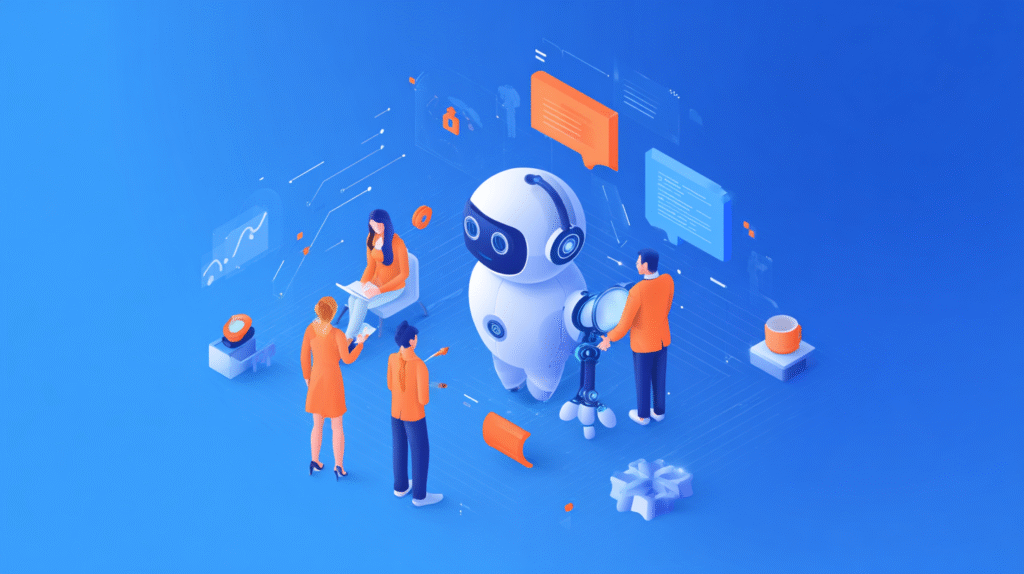As organizations navigate the complexities of a modern workplace, the integration of AI agents has become an increasingly pressing topic. HR leaders and business executives worldwide must embrace this technological evolution to maintain a competitive edge. AI agents can streamline workflows, enhance decision-making processes, and improve employee engagement. However, these benefits come with significant management challenges that require thoughtful strategies and proactive approaches.
In this article, we will explore the critical considerations for managing AI agents in HR, addressing key challenges and offering actionable solutions tailored to prepare your organization for successful AI integration.
Understanding AI Integration in the HR Landscape
Artificial Intelligence is reshaping various industries, and HR is no exception. The implementation of AI agents in staffing processes, such as resume screening, candidate engagement, and employee surveys, showcases AI’s potential to enhance efficiency. However, understanding how to manage these technologies effectively poses unique challenges.
Key Challenges in AI Management
Identifying and addressing management challenges related to AI agents is imperative for HR leaders. Here are several critical areas to consider:
- Training and Development: One of the biggest hurdles organizations face is training AI systems. AI agents require continuous learning and updates to stay effective. This involves not just technical training but also ensuring that HR staff fully grasp how these agents enhance workflows.
- Performance Review of AI Agents: Evaluating the performance of AI tools is less straightforward than traditional employee assessments. Metrics such as accuracy and efficiency must be established, and organizations need frameworks to ascertain the AI agents’ contributions.
- Cultural Resistance: Introducing AI into HR practices can meet resistance from employees fearing job displacement. Overcoming this requires robust communication strategies that engage staff and highlight AI’s role in augmenting human capabilities rather than replacing them.
- Ethics and Compliance: Ensuring that AI-driven processes adhere to ethical standards and legal requirements is crucial. Organizations must be attuned to privacy issues and transparency in algorithms to build trust among employees.
Strategies for Training AI Agents
Establishing a robust training framework for AI agents requires a strategic approach:
- Initial Training: HR must invest in comprehensive training sessions that familiarize staff and stakeholders with AI functionalities. Collaborating with AI vendors or employing specialist trainers can enhance this process.
- Regular Updates and Continuous Learning: AI systems should be updated regularly based on new data and changing business needs to maintain relevance and efficiency. Continuous monitoring and feedback loops can foster an adaptive learning environment.
- Simulate Scenarios: Implement training programs that incorporate real-life scenarios to help employees grasp AI’s application in everyday tasks, thereby enhancing their comfort in utilizing these tools.
Performance Evaluation of AI Agents
Developing effective metrics for AI performance evaluation is critical. Here are some strategies:
- Define Clear KPIs: Key Performance Indicators (KPIs) should specify benchmarks for success. Metrics such as user satisfaction, error rates, and processing times can effectively gauge the efficiency of AI solutions.
- Regular Audits: Incorporate periodic audits to assess AI agent performance against predefined KPIs, allowing for insights into areas needing improvement.
- Employee Feedback: Encouraging employees to provide feedback on the effectiveness of AI tools can lead to iterative improvements and foster employee engagement.
Addressing Cultural Resistance
Combatting cultural resistance to AI integration is essential for a smooth transition:
- Transparent Communication: Clearly communicate the purpose of AI agents and the benefits they bring to the organization and individuals.
- Inclusion in Decision-Making: Involve employees in discussions concerning AI integration, allowing them to voice concerns, which can lead to better acceptance.
- Demonstrating Benefits: Share success stories and data-driven results that illustrate how AI agents positively impact the workplace.
Ensuring Ethical and Compliant AI Practices
Navigating the ethical landscape of AI integration is paramount:
- Develop an Ethical Framework: Outline your organization’s ethical stance on AI usage, ensuring that all AI systems align with these standards.
- Regular Compliance Checks: Audit AI technologies for compliance with relevant legislation to minimize legal risks.
- Transparent Algorithms: Ensure that AI processes can be audited, making them traceable and explainable to users to foster trust.
Next Steps: Preparing Your Organization for AI Integration
The integration of AI agents into HR practices presents significant opportunities for efficiency and engagement. Nonetheless, it also comes with challenges that require immediate attention. Therefore, HR leaders and business executives must assess several areas before embarking on this shift:
- Evaluate Readiness: Conduct a thorough assessment of your organization’s readiness for AI integration. Identify gaps in current knowledge, technology, and culture that could hinder the implementation process.
- Invest in Training: Make a commitment to invest in both AI training and in developing a culture that embraces technological change.
- Foster Collaboration: Encourage cross-department collaboration that bridges the gap between HR, IT, and other stakeholders. This partnership will streamline AI integration efforts.
Conclusion: Embracing the Future of HR Management
As AI technologies continue to advance and permeate various aspects of business, HR leaders must strategically prepare for the integration of AI agents within their teams. Managing the training, performance evaluation, and cultural aspects of AI adoption is crucial to harnessing its full potential. By proactively addressing these challenges, organizations can create a cohesive environment that maximizes employee engagement and retains top talent.
Organizations must assess their readiness to adopt AI solutions promptly. Now is the time to evaluate how your company can embrace this change effectively. Pulivarthi Group is here to assist you in navigating these transitions and transforming your HR capabilities through innovative staffing solutions. Contact us today to learn more about how we can help you lead in the age of AI.





